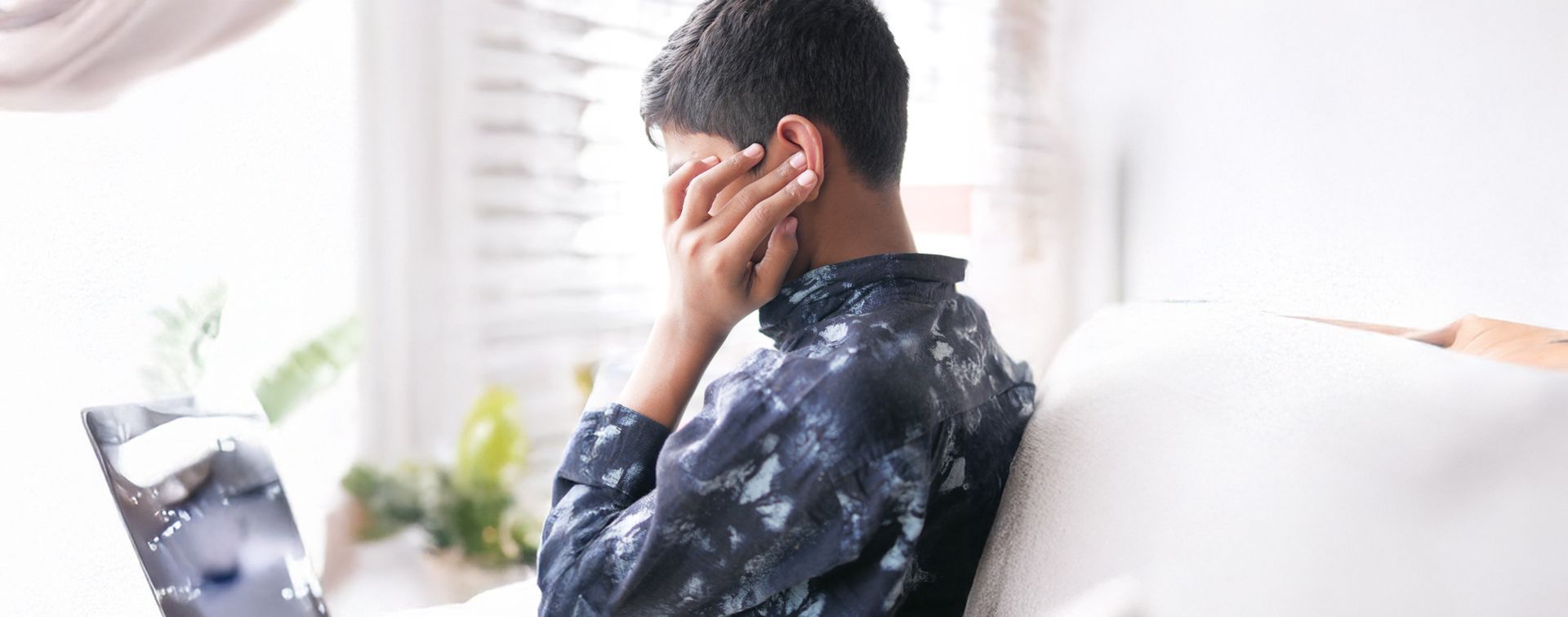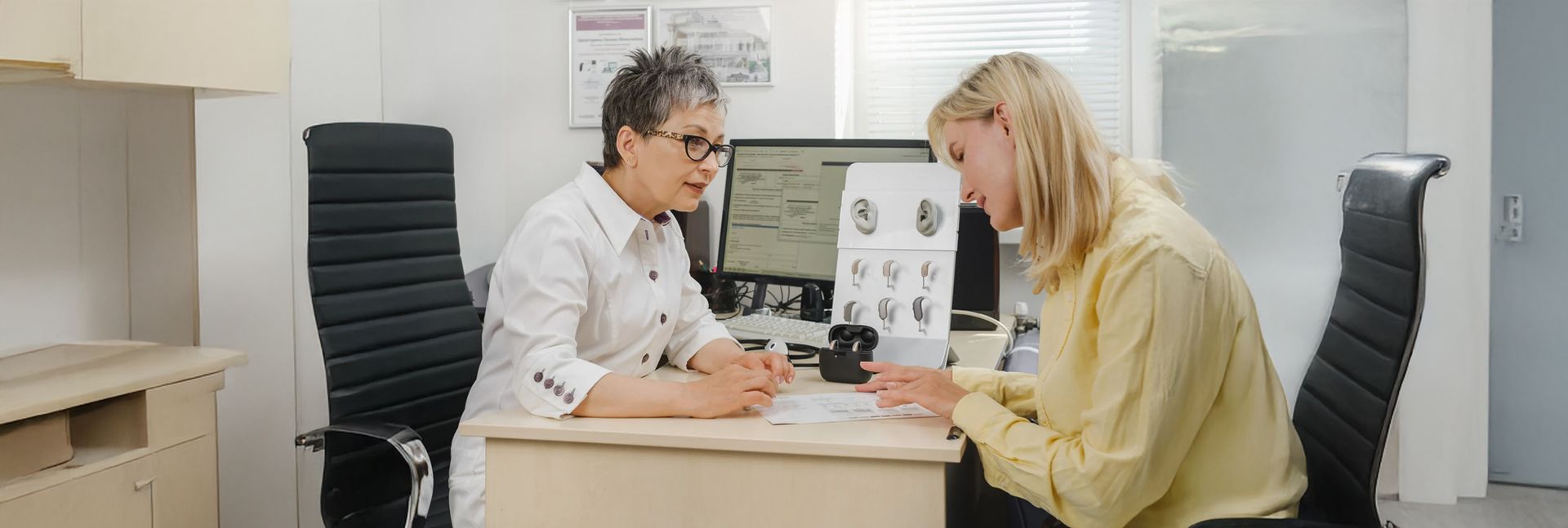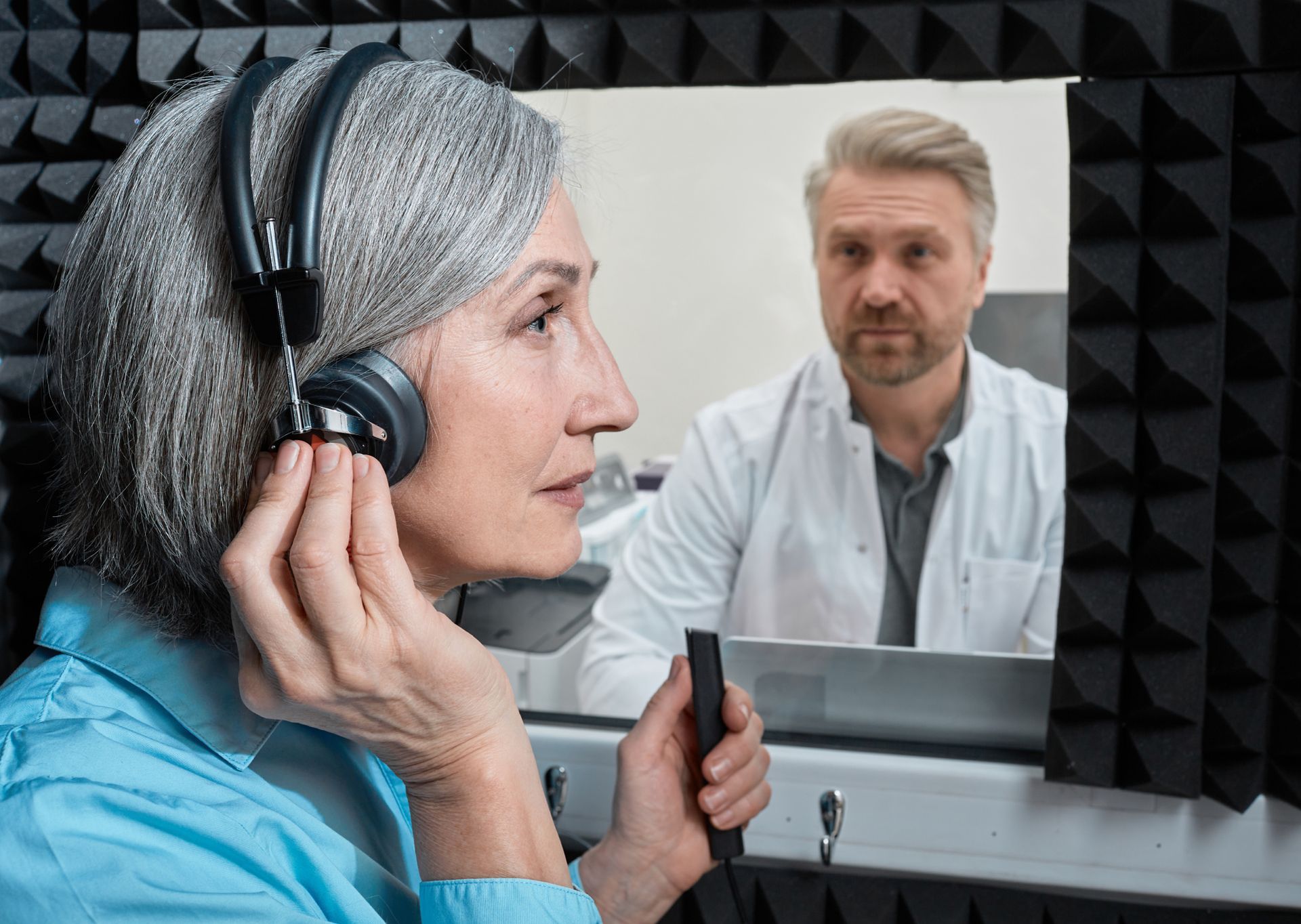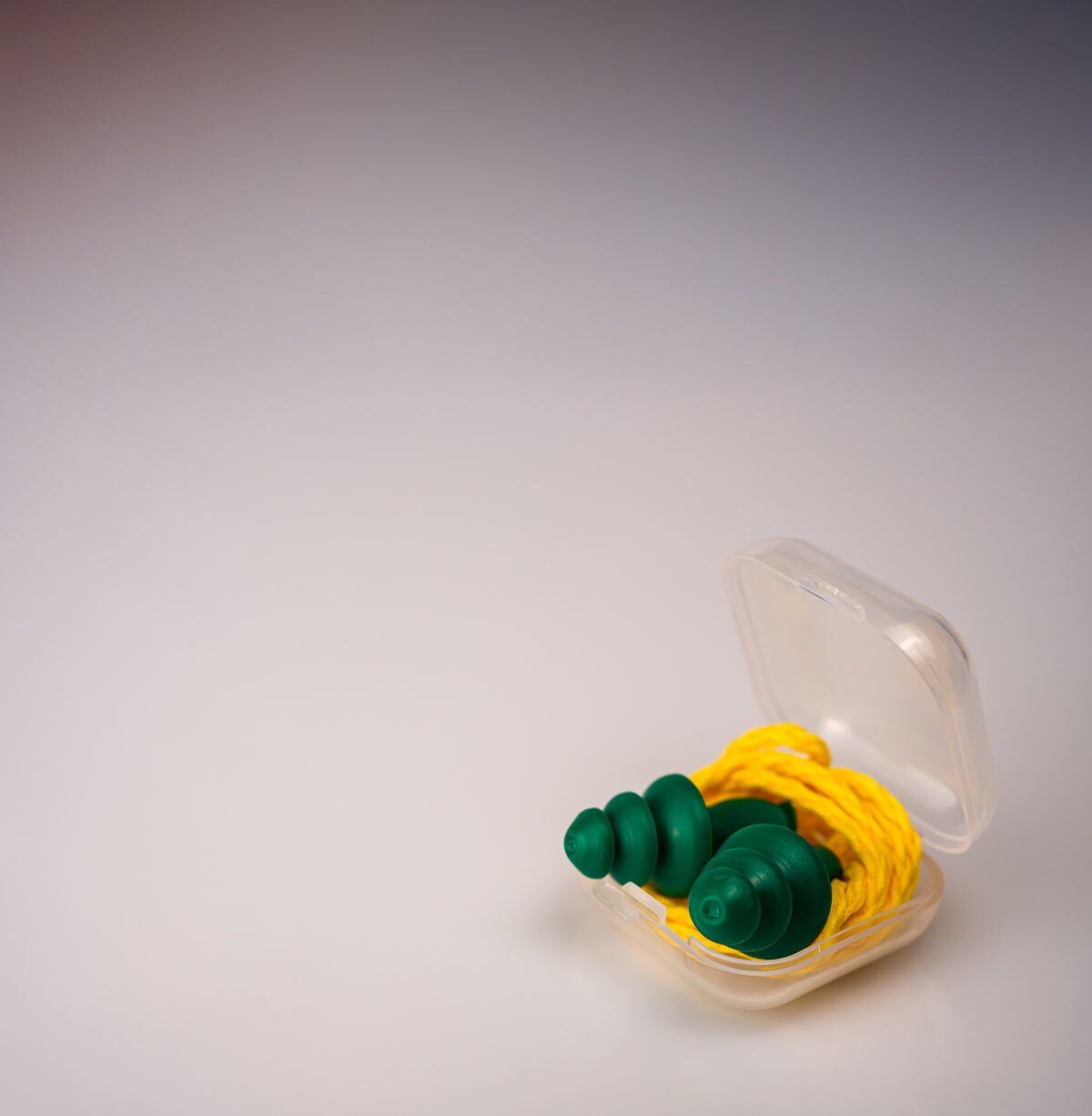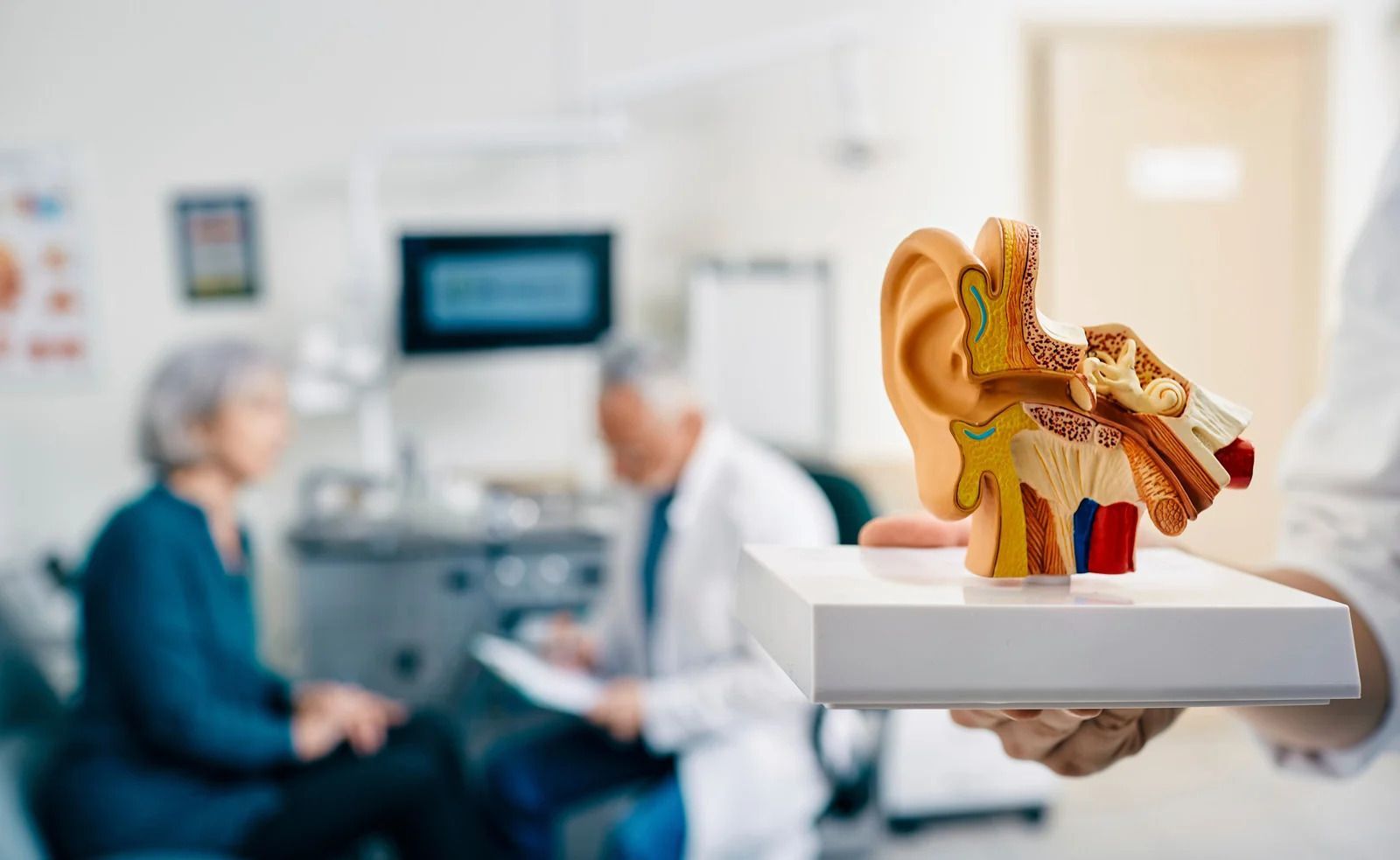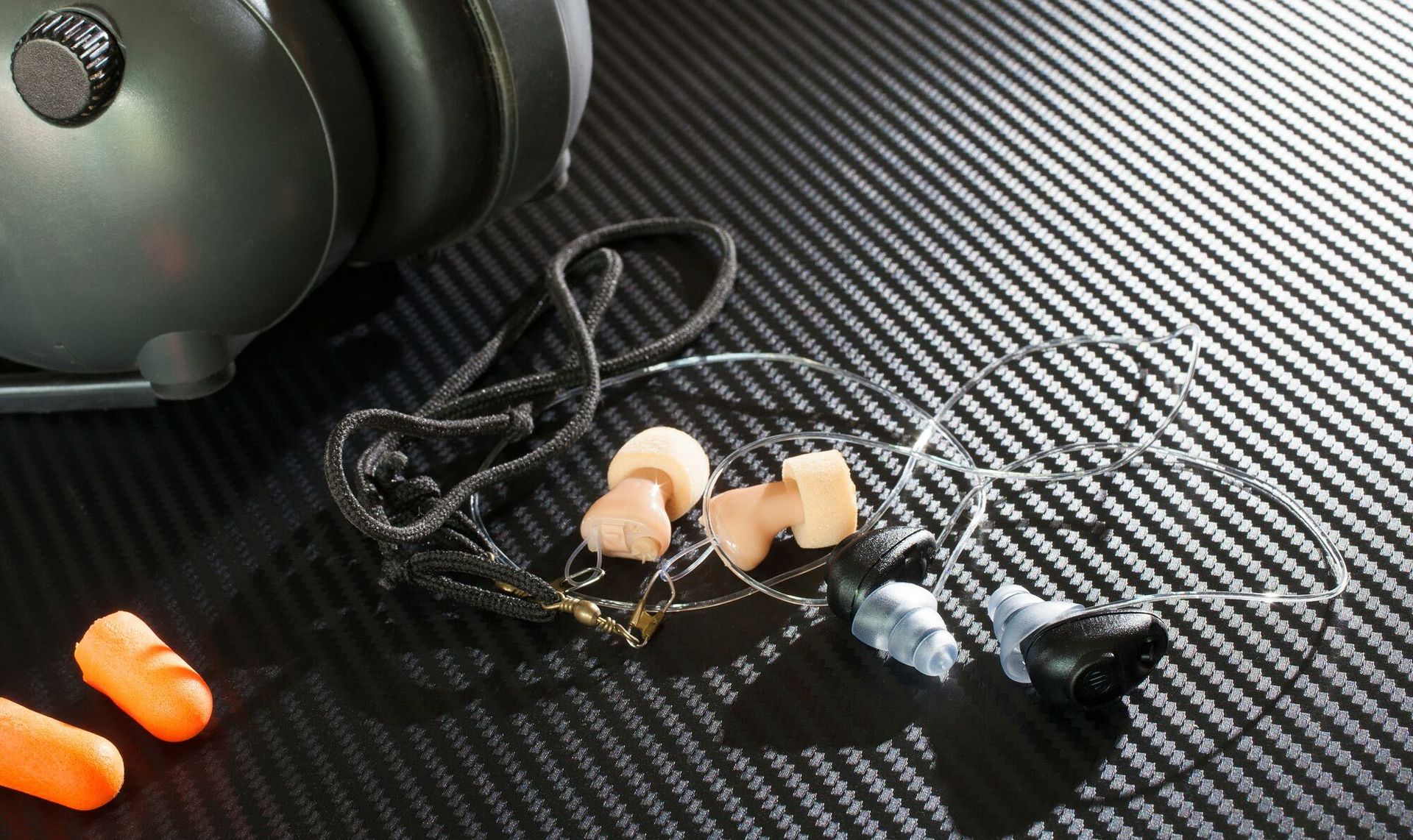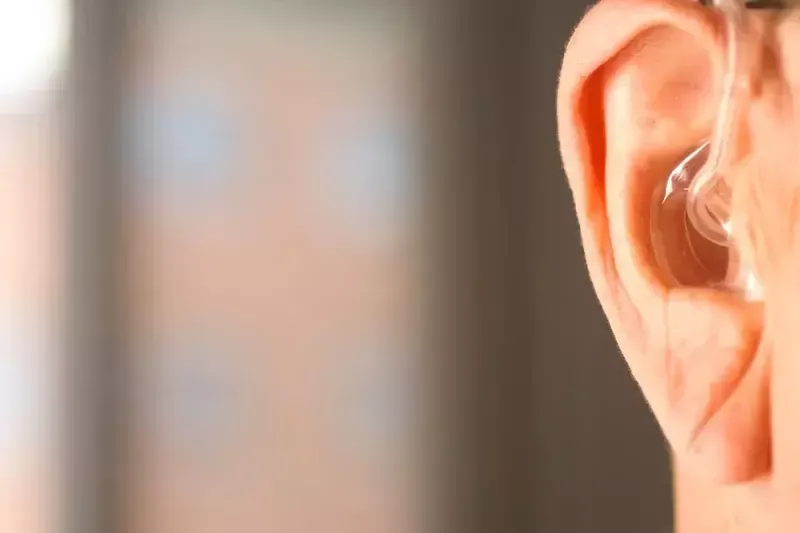Hearing Aid Maintenance 101: Keeping Your Devices in Top Shape
Modern hearing aids aren’t just devices…they’re the thing that keeps you connected to the world around you. With that in mind, their care should be a top priority. Like any piece of technology, a consistent maintenance routine helps them to work their best. The sensitivity of these devices makes their regular cleaning and care that much more important.
Hearing aids contain several delicate components that are constantly exposed to things like moisture, earwax, and debris. A few simple steps each day makes one’s hearing aid maintenance quick and easy to do, dramatically extending their lifespan.
Let Audiology First show you how.
Why Regular Maintenance Matters
The performance and durability of your hearing aids depends first on their build quality, and second on their maintenance routine—that’s how important it is! Think about it: they’re sitting snug inside your ears where earwax, moisture, dust, and all sorts of unpleasant things like to reside. It’s no wonder your hearing aids are susceptible to buildup and damage as a result.
As soon as the microphone or receiver become blocked, that’s where we start running into problems…
Moisture (sweat, humidity, etc.) can corrode the internal components of your hearing aid. Debris, like dust, dirt, and dander, always finds its way into the tiniest of openings, too. This is why regular cleaning has to be part of your daily hearing aid maintenance in order to ensure clear, high-quality sound every time you use them.
Daily Care Routine
The team here at Audiology First has prepared some simple advice for you to refer to. Consider the following.
Change Your Filters
About 85% of hearing aid issues are caused by blocked wax filters. Replacing the filter is usually a quick fix—and it's free. If you're unsure how, our front staff can show you or do it for you. Instructions are also in your manual and every filter pack!
Cleaning
Before going to bed, wipe your hearing aids with a soft, dry cloth. Then, use a light brush or wax pick (which hearing aids often come with) to gently remove any earwax or debris buildup. Be sure to check all openings and vents. A reminder, always handle your hearing aids over a soft surface (in case you drop them!).
Storage
You’ll want to keep your hearing aids in a cool and dry place overnight. Many hearing aids are rechargeable, and will be dehumidified while charging. They should always be stored in their charging case when not in use. A drying kit or hearing aid dehumidifier is also a smart investment, especially if you live in a humid climate.
Battery Care
Do your hearing aids use disposable batteries? Open the battery cover overnight to allow moisture to escape. Do they have rechargeable batteries? Hearing aids have built-in overcharge protection, and should be stored in the charger, with the charger fully plugged in, when not in use.
What to Avoid
We’ve touched on some things to do, now let’s talk about some things to avoid…
Water Immersion
Hearing aids are water-resistant, but not waterproof! Many hearing aids are rated at IP68, which means they can be fully submerged, and will usually recover from immersion in water. However, it’s not recommended to intentionally wear them in situations where they could be submerged or lost in water.
This means their threshold for dealing with moisture is quite low, and you’ll want to remove them before showering, swimming, or using a sauna. Even high humidity can be harmful, so you always want to be aware of the environments you’re spending time in.
Extreme Temperatures
Hot cars, freezing winter days…hearing aids are sensitive. You don’t want to leave them in or even expose them to these types of extreme environments for too long. Sudden shifts in temperature, too, can damage the internal components (or even warp the casing).
Harsh Chemicals
Alcohol, bleach, household sprays and other cleaning agents are not recommended to go anywhere near your hearing aids. Your audiologist can help recommend hearing aid specific cleaning products. You’ll also want to use a soft, dry cloth for everyday cleaning, as previously mentioned.
When to Seek Professional Help
Professional cleanings are offered for a reason. It’s good to schedule in for one every 4-6 months to handle any tough to reach buildup in the difficult and more delicate parts of your hearing aids. Even the most conscientious hearing aid maintenance routine will miss things from time to time, which is why it’s best to get a professional service done at least twice a year.
If issues start to arise at any time, however, such as no sound, distorted audio, chronic feedback, or physical discomfort, you may have to schedule an appointment sooner. Give our audiologists a call and we’ll give you our recommendation. It’s often worth bringing them in for an inspection and recalibration to make sure everything is in proper working order.
Why Your Input as the Hearing Aid User is Crucial
As the wearer of your hearing aids, you are the one best equipped to provide feedback to your audiologist. Our expertise only goes so far without your input and opinion to ensure your listening experience is top quality and meeting all your needs.
Personalized Settings
Hearing aids are tailored to your unique hearing profile, but that has to be constantly informed by your day-to-day listening experience, which only you can tell us about! This kind of feedback is extremely valuable to us as audiologists, and allows us to fine-tune the settings for the environments and situations you commonly find yourself in.
Comfort & Fit
Who wants to wear an uncomfortable hearing aid? That’s right, nobody! A comfortable hearing aid is more likely to be worn, and that’s what we want as your hearing care team. Your input on comfort helps us as professionals make the necessary adjustments that work just for you.
Real-World Performance
Your observations from the real world help inform the attunement of your hearing aids in the peace and quiet of our clinic. To optimize performance, we often rely on reports from the user. Understanding how the device operates across various situations is something that has to be tested in your everyday life.
Ongoing Adjustments
Hearing needs evolve as time goes on. We age, our lifestyles change, and our health conditions vary. Regular check-ins and open communication with the team here at Audiology First allow us to make sure your hearing aids continue to meet your needs over time.
Audiology First offers a daily 'no appointment needed' hearing aid cleaning service, which is performed by trained staff at the front desk. Booking with an audiologist or hearing care professional is not required to get a cleaning.
Walk-in cleanings are recommended 3-4 times a year. Our audiologists and hearing aid specialists will review any hearing aids that are not functioning properly during the cleaning process. If you are having problems with your hearing aids after the cleaning, a follow-up appointment can then be arranged.
Do you need help with your hearing aids? From hearing aid maintenance to fittings and checkups, Audiology First is here to help. We’re #1 in Southern Alberta for a reason. Schedule a consultation with us today. We can’t wait to hear from you!
